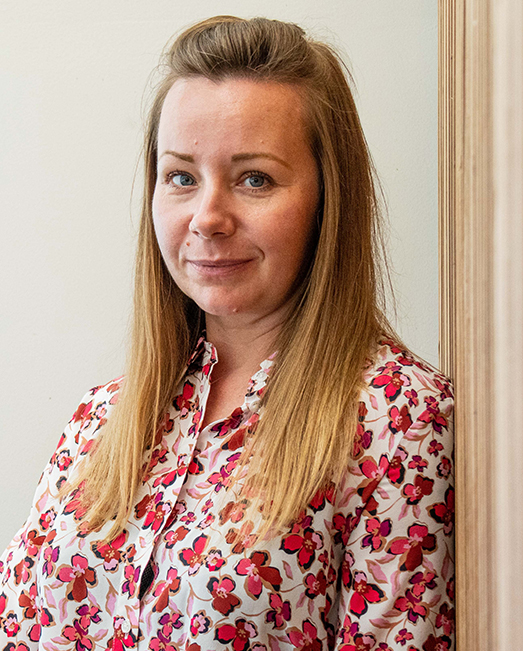Community
Copyright@ Australian Catholic University 1998-2026 | ABN 15 050 192 660 CRICOS registered provider: 00004G | PRV12008
Copyright@ Australian Catholic University 1998-2026 | ABN 15 050 192 660 CRICOS registered provider: 00004G | PRV12008

One minute, Nataliya Borulko was living peacefully in her Ukraine apartment. The next, she was in the basement with her daughters as bombs fell from the sky.
“The Russian invasion started in the capital and the small satellite towns, including ours, and we were heavily bombed, sitting in the basement,” Nataliya recalls.
“The building on the next street, it was crushed. It was not that the bombs were close, they were right there.
“It was obvious we couldn’t stay. In our apartment building, no one stayed.”
Nataliya and her daughters fled their town, hoping to catch the next evacuation train to Poland. She later learnt her town had been occupied by Russian forces the following day.
Throughout the terrifying ordeal, Nataliya’s only plan was to survive the war.
“We didn’t have any plan. The plan was just to get out of the town. Once we got to the capital, it was to get out of the Ukrainian territory. We understood that no town or city would be safe. It was just step by step,” Nataliya said.
“We didn’t care about the food, how we looked, about the toilet, or the bathroom – it was only what was the next action to survive.”
Nataliya and her daughters successfully boarded an evacuation train to Poland, which was accepting Ukrainians fleeing their country. They lived in a refugee camp, before being welcomed into the home of a Polish family who were taking in Ukrainian refugees.
In the meantime, Nataliya, who studied English in Ukraine, was making plans to flee to Australia.
“I had this idea (to go to Australia) because my brother was living here,” she said.
“I couldn’t imagine myself starting from the very beginning in France or Italy, even though all the European countries were happy to accept us.
“In my case, I didn’t have any European friends and I knew only English, my kids studied only English. It was obvious that only an English-speaking country would be an option.”
After one month in Poland, Nataliya and her daughters accepted a temporary Humanitarian Visa from Australia and were settled in Brisbane.
Ukrainians living in Australia on a Temporary Humanitarian Visa can seek support through the Humanitarian Settlement Program, which is offered by selected service providers.
In Brisbane, Nataliya sought support from Multicultural Australia. She was assigned a case manager and a job advisor. It was her job advisor that placed a lifelong dream in her hands.
Australian Catholic University’s Clemente program is a free, academically approved university course for people who would otherwise be excluded from tertiary education, including refugees like Nataliya. Students are offered subjects in humanities such as history, literature, philosophy and art, which can lead to a Certificate in Liberal Studies.
To Nataliya, it was a dream come true. She enrolled in the course that same day.
“In Ukraine I majored in mathematics but we had humanities subjects as secondary subjects, and I liked them more,” Nataliya said.
“The teachers were amazed that I was majoring in mathematics and not humanities. Now I’m taking up something I was missing.”
Clemente classes are small, with students meeting weekly with university lecturers as well as learning support volunteers, or Learning Partners. Nataliya says the program’s format allows students to be “absolutely free, truest versions of themselves”.
“Clemente gives me a sense of belonging,” Nataliya said.
“I know that every week I meet people who are not indifferent, they are sincere.
“The Learning Partners are sincerely and consciously wanting to devote their free time for something bigger, not just to help with daily life, like how to cook.
“I can study by myself already, so maybe I don’t need their direct help with study, but I need the questions – how are you today? How are you going?
“The whole format of the program is designed in a way that it helps everyone, the students, the partners, maybe even lectures and coordinators, to display the best they have.
“I also like the social part of it. I’m not looking to build any friendship now because I don’t have the capacity. But the amount of communication and socialisation I have is just what I need.”
Though Nataliya never imagined being faced with a decision to leave her entire life behind, she is making the most of her new one in Australia.
“No one expected it, but somehow we feel prepared,” Nataliya said.
“My status of a refugee here in Australia doesn't feel like the main feature of my current life. I now name people from Australia as my teachers, partners, classmates, supporters, and friends. It is a real treasure and makes you feel rich.”
Turn your dreams into reality. Learn more about Clemente.
Copyright@ Australian Catholic University 1998-2026 | ABN 15 050 192 660 CRICOS registered provider: 00004G | PRV12008